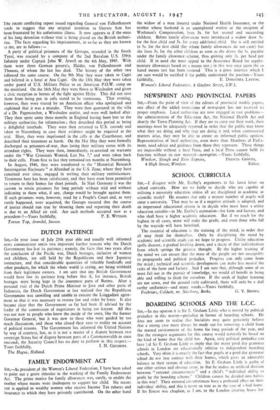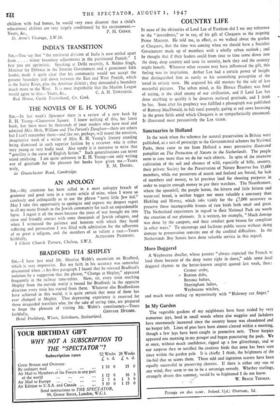BOARDING SCHOOLS AND THE L.C.C.
SIR,—In my opinion it is Sir E. Graham Little who is moved by political prejudice in this matter—prejudice in favour of boarding schools. He does not seem to realise that Socialists may quite genuinely believe that a strong case must always be made out for removing a child from the normal environment of the home for long periods of the year, and that the strongest arguments for this course would naturally be based on the kind of home that the child has. Again, only political prejudice can have l!cl Sir E. Graham Little to imply that the many good day grammar schools in London are educationally inferior to independent boarding schools. Very often it is exactly the fact that pupils at a good day grammar school do not lose contact with their homes, which gives an admirable balance to their system of education. Sir E. Graham Little is guilty of one other serious and obvious error, in that he makes an artificial division between " external circumstances " and a child's " individual ability to profit by the boarding scheme." Children cannot be divided into halves in this way! Their external circumstances have a profound effect on their individual ability, and this is never so true as in the case of a bad home. If Sir Ernest was chaplain, as I am, to the London clearing house for children with bad homes, he would very soon discover that a child's educational abilities are very largely conditioned by his environment.—



































 Previous page
Previous page